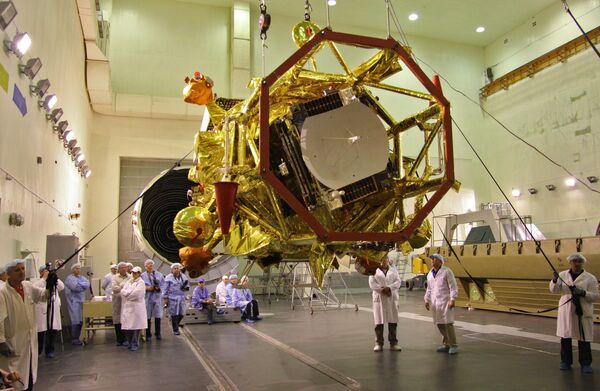A powerful electromagnetic emission from a U.S. radar in the Pacific could have caused the malfunctioning of the Russian Phobos-Grunt probe, the Kommersant daily said on Tuesday.
A Russian government investigation commission is considering several causes of the failure, including a short circuit or “external impact,” the paper said citing an unnamed source in the Russian space industry.
“Experts do not dismiss the possibility that the probe could have accidentally come under the impact of emissions [from a U.S. radar stationed on the Marshall Islands], whose megawatt impulse triggered the malfunctioning of on-board electronics,” the source said.
The source did not specify the type of the radar, but said it was monitoring the trajectory of an asteroid at the time of the Phobos-Grunt launch.
The source stressed that it was more likely an accident rather than a determined act of sabotage.
The government commission officials have refused to comment on the claim, Kommersant said.
The commission is expected to inform the head of the Russian Federal Space Agency Roscosmos Vladimir Popovkin of the preliminary results of the investigation on January 20.
Popovkin earlier suggested that the inexplicable malfunction of the Russian spacecraft could have been caused by “interference from a foreign technical facility.”
The official results of the investigation will be made public on January 26, Kommersant said.
Phobos-Grunt, launched on November 9, was designed to bring back rock and soil samples from the Martian moon Phobos. However, it got stuck in a so-called support orbit after its engines had failed to put it on course for the Red Planet, and fell back on Earth late on Sunday.
According to NASA, Russia has failed in all 17 of its attempts to study the Red Planet close-up since 1960. The most recent failure before November accident occurred in 1996, when Russia lost its Mars-96 orbiter during launch.




